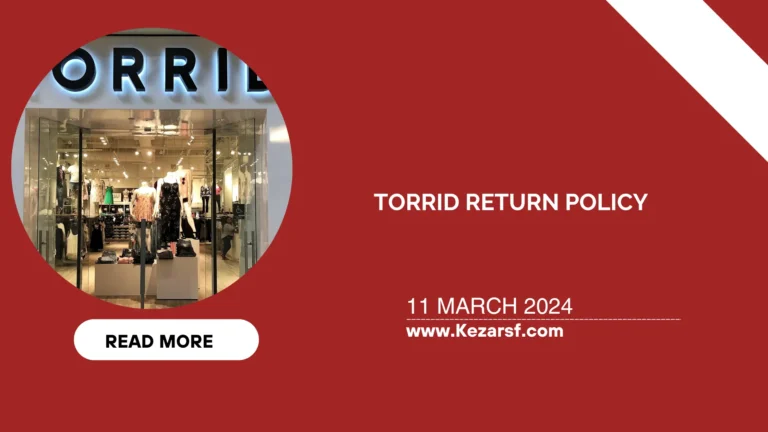How Much Does Target Pay?
Understanding the components of the wage structure is essential for both potential workers and team members working for a company like Target. How much does Target pay? One of the biggest retail chains in the country, Target, offers a comprehensive benefits package besides basic pay and bonuses.

Target offers a variety of salaries that are in line with the many roles that are open inside the organization.
The target is to provide competitive pay that considers market trends, industry norms, and the duties associated with each post, from entry-level employment to management positions.
Understanding that compensation might vary depending on location, experience, and performance is crucial for both job searchers and workers.
We will examine each of these elements in depth in this post, offering crucial details on Target’s pay system.
How Much Does Target Pay
The basic wage serves as the framework for Target’s compensation scheme. According to the function and job type, it refers to the set sum of money that employees are paid for their labor on an annual or hourly basis.
Based on characteristics including job, experience, education level, and region, basic pay at Target might differ significantly. For instance, entry-level jobs like cashiers or sales representatives could pay less in base pay than management or specialist positions.
To keep its base pay competitive, Target constantly assesses market developments and industry standards.
Target Bonuses
Target provides a variety of bonus programs besides basic salary as incentives and rewards for workers’ outstanding work. These bonuses may be based on an employee’s accomplishments, team targets, or corporate goals.
Target’s bonus plans frequently place an emphasis on elements like sales goals, customer satisfaction ratings, and operational effectiveness.
These bonuses provide workers the chance to earn money besides their regular pay and can serve as a powerful incentive for them to do well in their jobs.
Target Pay Benefits
The extensive benefits package offered by Target is renowned for supporting workers’ general well-being and improving work-life balance.
Benefits at Target include paid time off, healthcare, retirement savings, and employee discounts. Medical, dental, and vision insurance and accounts for flexible spending and health savings accounts are examples of possible health benefits.
A 401(k) plan with an employer match is a common retirement benefit that enables employees to save money for the future. Vacation days, holidays, and personal/sick days are all included in paid time off.
Target employees are eligible for various savings on the company’s goods and services.
READ ALSO:
- Can I Return Something at Target Without a Receipt?
- What Time Does Target Close?
- Does Target Take Apple Pay?
- How Do I Pay My Target Red Card Credit Card?
Target Extra Perks
Target provides its employees with extra advantages on top of the essential base wage, bonuses, and benefits. These benefits may include of wellness programs, financial aid for schooling, professional development opportunities, and employee help programs.
Employee assistance programs offer tools and help for dealing with both personal and professional issues, including financial planning and counseling services.
To encourage staff to pursue higher education, the company may offer scholarships or tuition reimbursement. prospects for career development may include mentorship programs, training efforts, and internal promotion prospects.
Through activities like exercise classes, wellness challenges, and access to wellness resources, wellness initiatives frequently target increasing both physical and emotional well-being.
What is Target Salary Pay Scale?

One of the biggest retail businesses in the United States, Target, provides a variety of job options. Understanding the wage range for various professions becomes essential as job searchers and workers weigh their possibilities.
This section will examine the pay scale at Target, from entry-level jobs to management positions, giving readers an understanding of what is paid at each level.
1. Target Entry-Level Positions
Numerous entry-level employments are available at Target, which many people use as a launching pad for their careers. Cashiers, sales associates, stock associates, and customer service agents are just a few examples of these occupations.
Target’s entry-level pay scale often changes depending on the location, duties, experience, and talents of the employee.
It is significant to remember that entry-level earnings may be determined under regional minimum wages, guaranteeing compliance with applicable laws.
Target attempts to pay competitively for even these positions while giving employees a chance for development.
2. Target Specialized Positions
There are several specialized roles available at Target that call for certain qualifications. Pharmacy technicians, cosmetics advisers, electronics experts, and colleagues in the bakery or deli are a few examples of these positions.
Because these roles need more training and responsibility, specialist occupations often have a greater wage range than entry-level ones.
When defining the wage range for specialist occupations, Target considers market variables, industry norms, and the needed degree of skill. Employees in these positions frequently earn pay that is consistent with their level of training and experience.
3. Target Management Positions
A variety of managerial jobs are available at Target, some of which include supervising whole departments, teams, or stores. Team leaders, department managers, store managers, and district managers are a few examples of these positions.
Target’s management salaries vary widely depending on the position’s degree of responsibility, the area’s size, the applicant’s experience, and other factors.
For instance, store managers are in charge of running the whole operation of the shop and are essential to increasing sales and attaining company goals.
Their pay scale accordingly reflects the high level of accountability and leadership demanded for these jobs.
Target also offers attractive pay packages for managerial positions because it understands how important it is to keep and grow talent.
Basic pay plus performance-based incentives are frequently included in the compensation package for managerial jobs.
These bonuses may be based on the achievement of sales goals, operational effectiveness, and team performance. These bonuses encourage and reward managers for their contributions to the company’s success.
Target’s Hourly Pay Rates

Analyzing the hourly pay rates Target offers for various job categories, such as cashiers, sales associates, and warehouse employees.
It may give those contemplating employment at Target useful insights into the compensation structure and assist them in making educated selections.
1. Cashiers
The first line of customer service is comprised of cashiers, who handle transactions and guarantee easy checkouts. Target cashiers may receive a different hourly wage depending on their location, experience, and performance.
Target’s hourly compensation for cashiers ranged from about $10 to $15 per hour, depending on various circumstances, as of my knowledge’s cutoff date in September 2021.
It is crucial to remember that hourly rates are subject to change over time and may vary depending on local minimum wage legislation or Target’s compensation changes.
2. Sales Associates
Helping customers, replenishing inventory, and maintaining the sales floor’s appearance are all responsibilities of sales staff. Similar to cashiers, the location, experience, and performance of sales employees at Target affect their hourly pay rate. To receive the most current and accurate facts, it’s important to refer to the most recent data from Target’s official sources.
3. Warehouse Workers
Workers at the warehouse are essential to Target’s logistical operations, including the receiving, arranging, and shipping of goods.
Work duties, experience, location, and shifts are just a few of the variables that might affect how much warehouse employees are paid per hour.
The wage rate for warehouse employees at Target frequently varied from around $14 to $20 per hour as of the application deadline.
However, it’s crucial to remember that these rates might alter and could differ depending on things like geography and the state of the market.
Target Considerations Toward Hourly Pay
It is important to note that Target regularly assesses its pay practices to make sure they continue to be market-competitive and compliant with professional standards.
Hourly pay rates can vary depending on a number of variables, including local minimum wage legislation, market needs, and Target’s commitment to offering fair and competitive remuneration.
Additionally, Target provides chances for growth and higher earning potential through promotions and performance-based rewards.
Analysis of Target’s hourly pay rates for several job categories, such as cashiers, sales associates, and warehouse workers, demonstrates the company’s dedication to providing equitable wages for its staff.
People may decide wisely about future job possibilities at Target and learn more about the pay scale the firm offers by taking these rates into account.
READ ALSO:
- How Do I Check Out on My Target Gift Card?
- Does Target Give Holiday Pay?
- Does Target Accept Apple Pay?
- How Do I Access My Target Red Card Account?
- How Do I Access My Target Red Card Account?
Target’s Minimum Wage Policy
Target is an important player in the debate over minimum wage laws since it is a well-known retailer in the United States. In this section, we’ll examine Target’s position on the minimum wage and see how it stacks up against state and municipal laws.
Knowing Target’s dedication to fair compensation might help you better understand how the firm views employee welfare and if it complies with industry labor norms.
Target’s Commitment to Fair Compensation
Target’s choice to set a minimum salary that is higher than the legal minimum illustrates its dedication to providing fair remuneration and promoting the financial security of its employees.
Target wants to recruit and keep great employees by paying a better starting wage, enhancing work satisfaction, and lowering turnover.
This dedication supports Target’s guiding principles of encouraging employee involvement and positive workplace culture.
Impact and Broader Implications of Target’s Minimum Wage Policy
Beyond the immediate effects on its employees, Target’s position on the minimum wage is comprehensive.
By adopting a higher beginning pay, Target contributes to creating a precedent in the retail sector, setting an example that might persuade other businesses to review their compensation policies.
Besides helping Target’s staff, this pledge advances the general discussion about inequality in earnings and the need for decent wages.
Target Evaluation on Minimum Wage Policy
It is essential to remember that Target’s minimum wage policy and the wider legal environment are both vulnerable to change.
Like other businesses, Target continually assesses its pay policies to make sure they are fair, competitive, and in accordance with local laws and regulations.
Target is committed to upholding a minimum wage policy that is consistent with its principles and the welfare of its employees notwithstanding changes in the labor market and shifting economic situations.
Target’s dedication to fair remuneration and assisting with the financial stability of its employees is demonstrated through its minimum wage policy.
Target displays their commitment to fostering a healthy work environment and luring talent by exceeding the government minimum wage standards.
However, it is crucial to keep up with the most recent developments regarding Target’s minimum wage policy, as well as local and federal laws, by reviewing official sources or speaking with Target’s human resources division.
The retail sector should learn from Target’s proactive approach to the minimum wage, which highlights the value of just remuneration and adds to the continuing discussion about income equality.
Target’s minimum wage policy demonstrates its dedication to its staff, the values of justice and social responsibility, and its continued priority of employee welfare.
Target’s Comprehensive Employee Benefits
In this section, we’ll examine the variety of perks Target offers its staff, such as health insurance, paid time off, parental leave, and employee support programs.
Knowing about Target’s extensive employee perks reveals the company’s commitment to helping its employees and promoting a healthy work environment.
1. Health Insurance
Target offers its workers a variety of comprehensive health insurance alternatives because it understands how important having access to high-quality healthcare is. Plans for medical, dental, and vision insurance are frequently offered as choices.
Employees have a choice of coverage options that will give them access to medical services, preventative care, and prescription drugs.
2. Parental Leave
Target is aware of the importance of helping employees through significant life milestones, such as the birth of a new family member. Target provides parental leave benefits to meet the demands of parents who are also working.
These benefits give qualified workers the chance to take time off in order to spend quality time with and take care of their newborn or recently adopted kid.
Target’s parental leave policies frequently cover both maternity and paternity leave, fostering a positive work-life balance.
3. Vacation Time
Work-life balance is essential for employee satisfaction, and Target recognizes this by providing its staff with a considerable amount of vacation time.
Depending on variables including length of service and position within the organization, a different amount of vacation time may be offered.
Target offers its employees the chance to take time off and rest, allowing them to spend valuable time with their families, pursue personal hobbies, or just unwind and relax.
The compensation structure at Target comprises several elements that guarantee workers are appropriately paid for their efforts and given chances for professional advancement.
A complete pay plan that supports employees’ financial security, recognizes excellent performance and fosters general well-being is made up of base salary, bonuses, benefits, and extra incentives.
It’s critical for potential recruits and current team members to keep informed about the nuances of Target’s compensation structure as the company continues to change and adapt to the always-shifting retail industry.
For the most precise and up-to-date information, it is advised to use official Target resources or contact their human resources department.
Keep in mind that joining Target is joining a business that loves its workers and attempts to foster an enjoyable and productive workplace.






